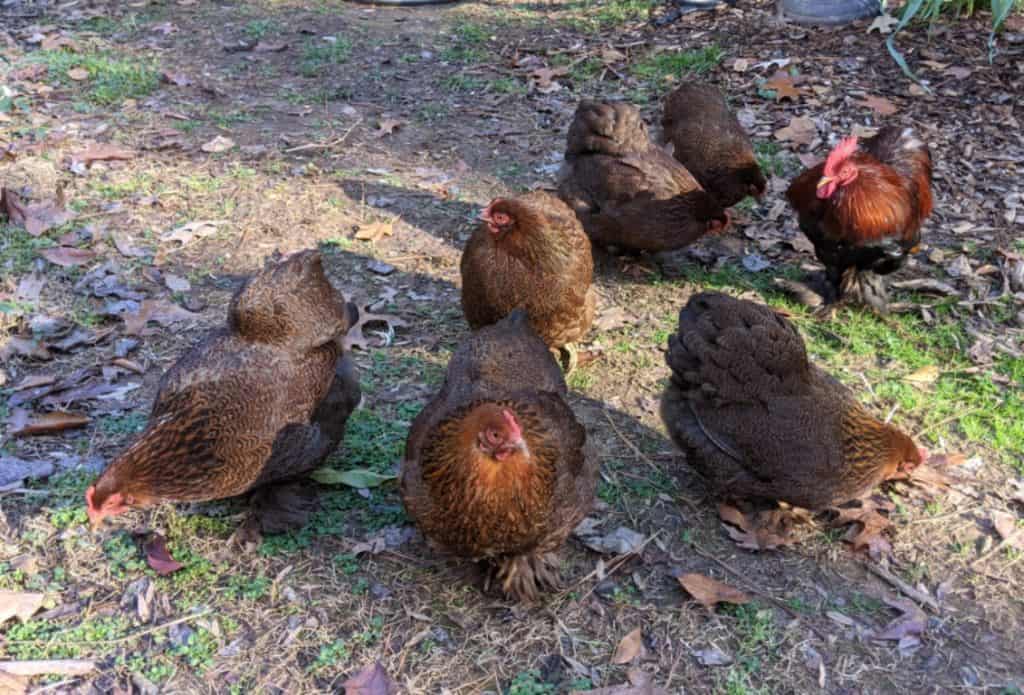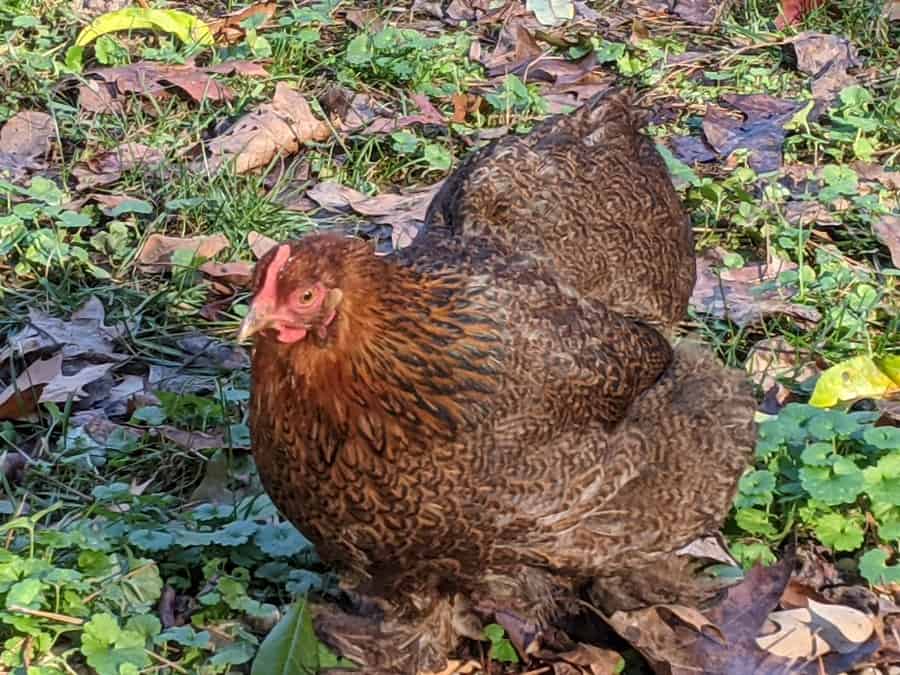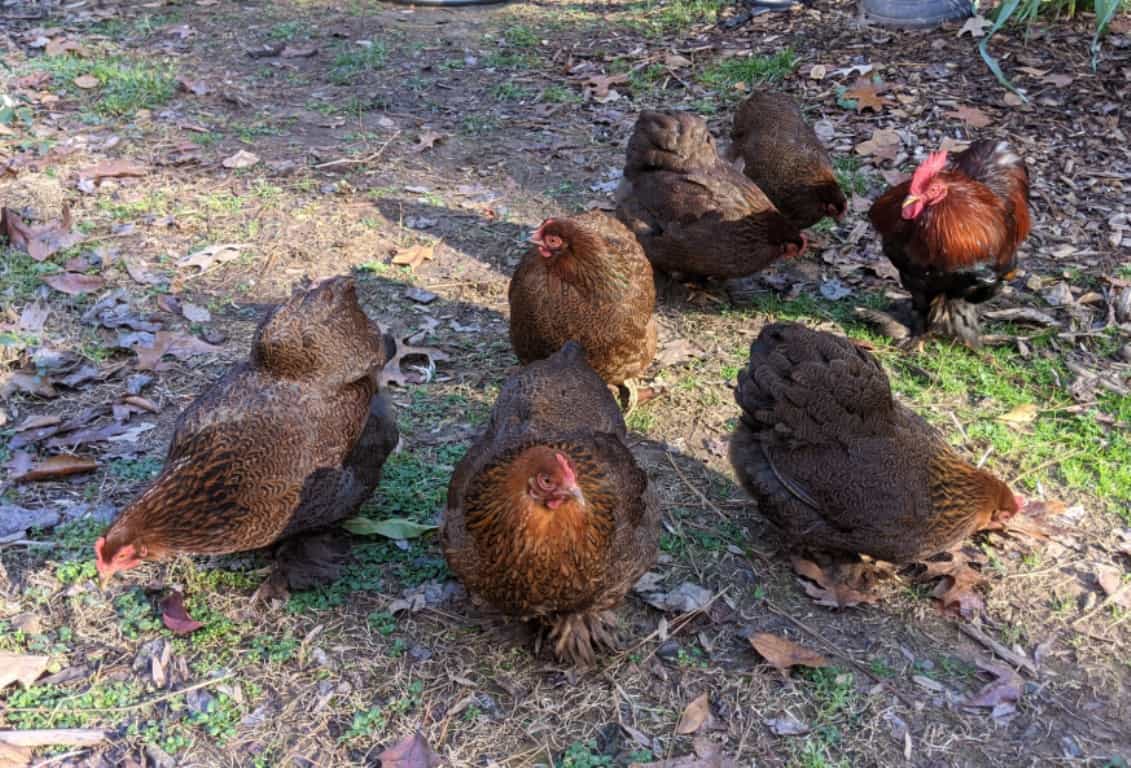
If your hens have stopped laying eggs in your chicken coop all of a sudden do not despair. There are a variety of factors that may contribute to this drop in egg production.
Through my experience having hens for many years and researching the topic, I will discuss some of the common reasons your hens have stopped laying eggs.
Hens stop laying eggs due to poor nutrition, age, stress, lighting, molting, dehydration, age, sickness, extreme weather, and other factors. When it starts getting colder outside your chickens will start to lay fewer eggs.
- 15 possible reasons your hens are not laying eggs
- 1. Diet and Nutrition
- 2. Increased stress
- 3. Lack of daylight
- 4. Extreme weather
- 5. Change in routine
- 6. Your hen has reached old age
- 7. Your hen has a illness
- 8. Certain breeds lay more eggs than others
- 9. The nesting area is dirty
- 10. Your hen is broody
- 11. Your hen is molting
- 12. Your coop is too small
- 13. Your hen is egg-bound
- 14. Pests are bothering your hens
- 15. Your eggs are being eaten or hidden
- Do chickens lay fewer eggs when it’s cold?
- At what age do hens start laying eggs?
- At what age do hens stop laying eggs?
- What is the best thing to feed chickens for eggs?
- When do chickens start laying eggs regularly?
- Conclusion
15 possible reasons your hens are not laying eggs
1. Diet and Nutrition
If you have changed the hen’s diet from crumbles to pellets this could be causing the issue. This was the very reason some of my hens stopped laying eggs recently. As soon as I changed back to crumbles my hens started laying eggs again.
Hens also need a constant supply of nutritious layered feed that contains 16% to 18% protein content according to the University of Virginia.
You can purchase treats such as mealworms on amazon here to increase your hen’s protein intake.
Your hens also need an adequate supply of calcium. Make sure and feed your chickens a balanced diet that includes more than table scraps and bread.
Dehydration due to a lack of water may also be a cause of egg reduction. Hot weather is a big cause of this. Make sure your hens have adequate water stations to avoid water deprivation.
2. Increased stress
There are a variety of factors that can cause your hens to be stressed. Predators such as raccoons, dogs, or possums could be causing nightly stress to your hens. Another factor could be the loss of the leader of the flock if this has occurred.
Chickens also do not like wet drafty conditions in their coop. Loud noises at night could also be stressing out your hens.
3. Lack of daylight
Hens require 14 hours of natural daylight to lay eggs. As seasonal changes occur the hours of daylight will decrease below 12 hours per day. Your hens will reduce egg production and often stop laying eggs completely during the winter season.
You could add artificial light to your coop to keep egg production going throughout the winter months however this is not advised. Your chickens need rest from laying eggs throughout the year.

4. Extreme weather
If your chickens get too hot or cold this could decrease the number of eggs you receive each day. A well-insulated coop can decrease temperature swings that happen throughout the year.
5. Change in routine
Any change in routine could decrease egg production. Any change such as moving the nesting boxes, using a new type of nesting box, adding a new hen to the flock, moving the chicken coop, or putting the hens in a different type of coop could cause issues.
This change in routine could decrease egg laying temporarily.
6. Your hen has reached old age
Often hens start laying fewer eggs once they have reached 6 to 7 years of age. Your hen can still live up to 8 or 10 years of age. This will of course depend on the chicken breed and their environment.
7. Your hen has a illness
Your hen could be showing signs of illness or disease such as Fowl Cholera, Pullorum Disease, Fowl Typhoid, Erysipelas, or Infectious Coryza.
If your hens are sneezing or wheezing they may have Chicken Respiratory Disease (CRD).
8. Certain breeds lay more eggs than others
Different laying breeds of chickens produce different amounts of eggs each year. Breeds such as the White Leghorn or Rhode Island red are some of the best egg layers there are.
9. The nesting area is dirty
Keep your coop clean. You don’t need to clean it daily or even weekly. However, I always clean out the shavings at least once every month and I do a deep cleaning twice per year.
10. Your hen is broody
When a hen is brooding she will not lay eggs. She wants to have chicks and may sit in the nesting box for most of the day. This usually only last for three weeks or 21 days.
11. Your hen is molting
Once your hens reach 15 to 18 months of age they will start molting. This molting process will occur each year. During the molting process, your chicken’s feathers fall out to make room for new feather growth.
At this period of time, your hens may not lay eggs as their biological systems are focusing on new feather growth.
12. Your coop is too small
Chickens don’t need a lot of space. However, if you have too many chickens crammed in a tight enclosure this can cause stress and reduce egg-laying.
Make sure your coop has enough square feet to keep your hens comfortable and happy.
13. Your hen is egg-bound
When a hen is egg-bound the egg is physically stuck inside the hen. This is a rare occurrence but it should be treated seriously as it can lead to death.
14. Pests are bothering your hens
Pests such as mites or lice could be bothering your egg-laying hens causing stress and lowering their egg production.
15. Your eggs are being eaten or hidden
Predators such as snakes or rats could be eating your eggs without your knowledge. If an egg breakage occurs then hens may start to eat the egg. Hens will also start eating eggs if their calcium levels are low.
Your egg-laying hens may be laying under a bush, under your deck or another place your not aware of.

Do chickens lay fewer eggs when it’s cold?
During the winter and cold months, chickens will stop laying eggs as their bodies need rest. This is due to a hen laying eggs throughout the year. Also when it is cold there are less than 14 hours of daylight. Hens require 14 hours of daylight per day to lay eggs.
You can add artificial lighting to your coop if you want your hens to lay eggs all year long.
At what age do hens start laying eggs?
Most hens will start laying eggs after they are 18 weeks old. In a hen’s first full year of life they can lay over 200 hundred eggs.
At what age do hens stop laying eggs?
As hens age, they will decrease their egg production. Once a chicken reaches 6 to 7 years of age they will stop laying eggs completely.
Many hens live up to 8 to 10 years of age when they are well taken care of.
What is the best thing to feed chickens for eggs?
Make sure you feed your hens a diet that includes a sufficient amount of calcium and protein. This is important as a lack of these nutrients will decrease or stop egg production.
When do chickens start laying eggs regularly?
Hens can start laying eggs as early as 18 weeks old. Generally, hens should start laying eggs once they reach 6 months of age. Certain breeds can take up to 8 months or longer to start laying eggs consistently.
Conclusion
Hopefully, this article will help you determine why your hens are not laying eggs and get your hens producing those eggs daily again.

